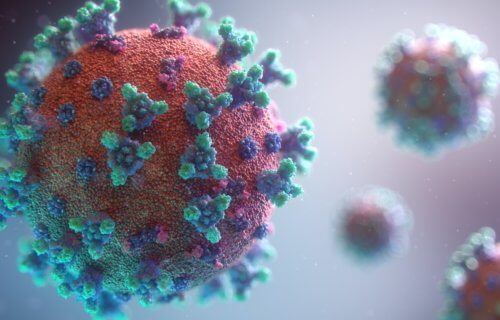BARCELONA, Spain — Don’t assume a prior bout with COVID-19 is all it takes to achieve permanent protection from future infections. After analyzing over 1,000 people, researchers from the Barcelona Institute for Global Health (ISGLOBAL) say 36 percent of unvaccinated COVID patients had no detectable antibodies left in their system a year after infection.
Importantly, this was particularly true among adults over the age of 60 and smokers. The research team concludes hybrid immunity, or vaccination plus infection, is the longest-lasting avenue toward robust coronavirus protection.
Over the course of the pandemic, studies have shown that both prior infection and vaccination are key to building up a population’s immunity to SARS-CoV-2. The word “immunity” is often synonymous with “antibodies,” but study authors explain that immunity against a pathogen isn’t quite as simple as counting antibodies. Still, the most efficient way to assess immunity across an entire population is through seroepidemiological studies (quantifying virus-specific antibodies in a given population group).
“Most of the serological studies performed after COVID-19 vaccination focused on specific groups such as healthcare workers, did not distinguish between people with or without previous infection, or did not have clinical and immunological data of the infection,” explains senior co-author Manolis Kogevinas, an ISGlobal researcher, in a media release.
‘Hybrid immunity is superior and more durable’
Along with ISGlobal researcher Carlota Dobaño, Kogevinas performed a second measurement on a population-based sample from Catalonia roughly six-months after that region of Spain began vaccinating residents. The first measurement took place just after the first lockdown period. This second assessment monitored the level and type of antibodies against five viral antigens (the whole Spike (S) protein, the RBD receptor binding domain, the S2 fragment, the full nucleocaspid (N) protein, or the N-terminal fragment) among locals.
Information gathered from a questionnaire and health records also helped to zero in on any potential factors determining the magnitude and duration of antibody responses among the unvaccinated, vaccinated, or breakthrough patients. In all, 1,076 people, between the ages of 43 and 72 years-old, were part of the analysis.
The investigation yielded three main findings. The first was that one in three unvaccinated individuals had no COVID antibodies left a year after their infection, with most of these patients being older than 60 or a smoker.
Researchers also found that vaccination led to significantly higher levels of antibodies among those who had overcome a prior infection. Additionally, antibody levels displayed a strong connection with the magnitude of the immune response during an infection.
“Our data underscore the importance of vaccinating people even if they have been previously infected, and confirm that hybrid immunity is superior and more durable. This means that people who have been vaccinated but have not been infected would need a booster earlier than those who have,” explains Marianna Karachaliou, first author of the study, together with Gemma Moncunill.
Only about 1 in 100 vaccinated people suffer a breakthrough infection
Finally, study authors also say vaccine variety influenced antibody levels heavily; Moderna’s Spikevax generated the most antibodies. However, other factors also appeared to play a role, such as age or mental health. Those older than 60 or with mental illness had lower antibody levels post-vaccination.
“The association between mental health and antibody responses requires further investigation, but it is known that people with disorders such as depression, chronic stress or schizophrenia have a lower response to vaccination in general,” Dobaño explains.
Among vaccinated individuals, only 2.1 percent had no antibodies, and about one percent experienced a breakthrough infection.
“However, it should be noted that this study was done before the Omicron variant became dominant,” warns Kogevinas.
The study is published in the journal BMC Medicine.

The “before omicron” should be the first line. This was a study of a virus version that doesn’t exist.
You can write about your “scientific” studies but we all know there’s WAY MORE than 1 in 100 breakthrough infections.